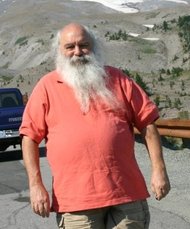Americans now have something in common with the ordinary people of Germany, Japan and (frankly) nearly every other country under the Sun.
We face the challenge of honoring our warriors, even those who fought in dishonorable wars.
The challenge of separating the warrior from the war has been around for ages, and is told memorably in The Americanization of Emily.
It’s
not greed or ambition that makes war: it’s goodness. Wars are
always fought for the best of reasons: for liberation or manifest
destiny. Always against tyranny and always in the interest of humanity…As long
as valor remains a virtue, we shall have soldiers. So, I preach
cowardice. Through cowardice, we shall all be saved.
James Garner’s Charlie Madison is preaching cowardice during World War II, in the days leading up to that most valorous of American battles, D-Day, which is the centerpiece of the plot. This took a lot of courage on the part of playwright Paddy Chayefsky. Especially given that it was written near the start of a far less-honorable war, in Vietnam.
In fact, at the time that movie came out the man on the left, my dear friend T. Bass, was a young marine serving in that same Vietnam. He was wounded three times, each more horrifically than the last, and each time got just a Purple Heart, because Marines feel fighting is the job and the big decorations should only go to those who do something truly "above and beyond."
When Tommy got home from the war, he became a peace activist. He is a veteran of both the war and the war against the war. He was a peace activist in South Georgia, where he grew the long flowing beard he still wears today (it was black then), and where his neighbors thoroughly dishonored him, both because we didn’t "win" and because he had changed so, become in their terms a "hippie."
Tommy has lived his whole life, from that day to this, in the shadow of Vietnam, a dishonorable war. As we all have. And he finds himself, as the rest of us do, right back at the same place, and for the same reason. People have found what they consider a good reason for war. They insist the rest of us follow.
And the war advocates are playing the same game, only more nakedly than they ever did then. If you don’t vote for the war you’re against the troops. And in ways we didn’t until the very last days of Vietnam, we the people are not buying it.
Yet we feel as powerless now as we did then. When will Americans learn Charlie Madison’s lesson. Through cowardice, we shall all be saved. There are many, many ways to fight a war other than fighting a war. Economically, culturally, politically, diplomatically. When you’re facing forces who only want to destroy civilization, who have no clue how to build anything, the only way you can lose the war is militarily.
As we have done.
Any young man or woman who demands you "support the troops" this weekend, drag their butts to a recruiter and watch them cry. Cowardice will save us all.













You are so right – unfortunately. I don’t think we will ever learn…
You are so right – unfortunately. I don’t think we will ever learn…
The sad thing is that prior to the Iraq War, we were winning the Cultural War. That is exactly why we were at the top of Osama’s shit list. In the long run, the cultural war is the only one worth winning and counter productive conventional wars should be avoided whenever possible. Yes, Saddam was evil, but the world is full of evil and our resources are finite. The question we must always ask ourself is how can we do the most good with what we have to work with. That question was not asked loudly enough in the lead up to the Iraq War.
The sad thing is that prior to the Iraq War, we were winning the Cultural War. That is exactly why we were at the top of Osama’s shit list. In the long run, the cultural war is the only one worth winning and counter productive conventional wars should be avoided whenever possible. Yes, Saddam was evil, but the world is full of evil and our resources are finite. The question we must always ask ourself is how can we do the most good with what we have to work with. That question was not asked loudly enough in the lead up to the Iraq War.